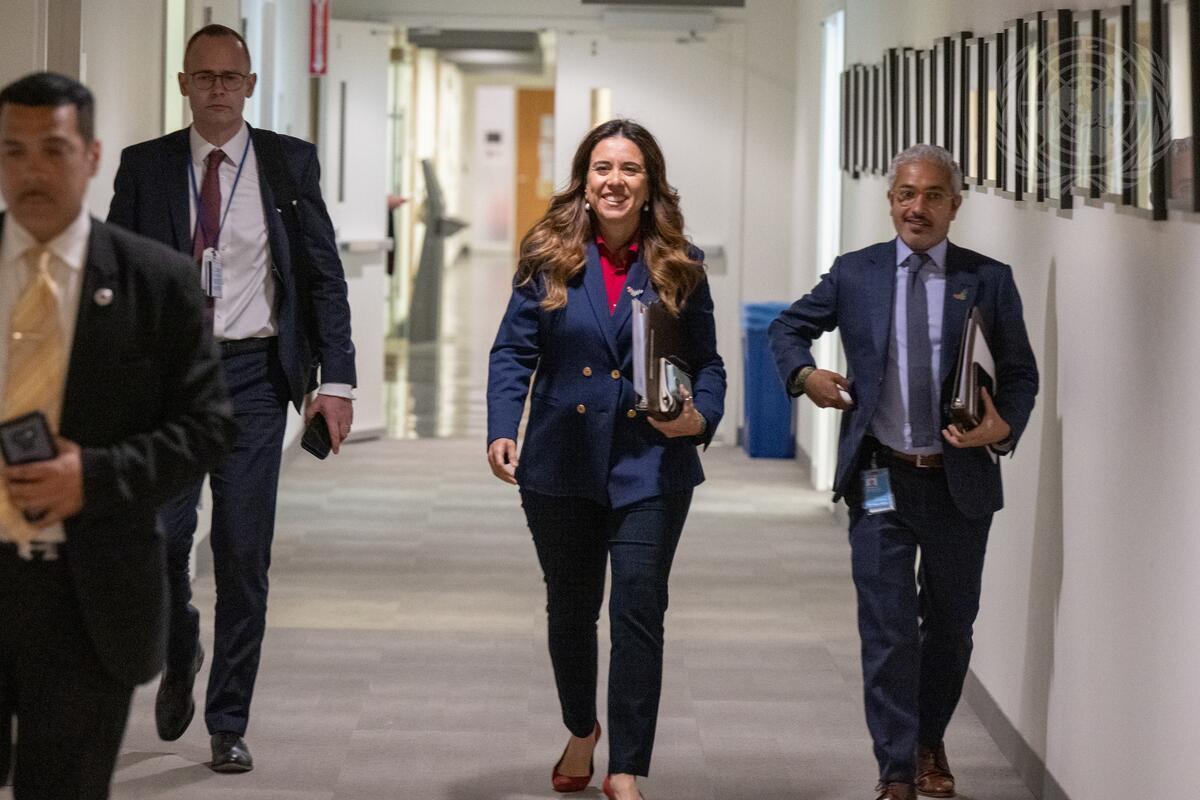NEW YORK — The UAE has declared human fraternity, climate change, peace and security, and cooperation between the United Nations and the League of Arab States as its primary concerns during its tenure as President of the United Nations Security Council for June.
The UAE, in its presidential role, sets the Council’s agenda with concurrence from other members, presides over Council sessions, and facilitates the passage of resolutions and other Council outputs. The UAE’s program for June includes 17 briefings, two meetings of troop-contributing nations, one Debate, one Open Debate, thirteen Closed Consultations, and one Informal Interactive Dialogue, plus seven adoptions.
“We take pride in assuming the UN Security Council’s presidency for the second time in our term and pledge to uphold our responsibilities, including ensuring peace, fostering inclusiveness, developing resilience, and encouraging innovation,” stated Ambassador Lana Nusseibeh, the UAE’s Permanent Representative to the UN. “We are committed to fostering dialogue and building consensus among Council members on urgent global issues, utilizing all tools at our disposal to fulfill the Council’s mandate.”
Ambassador Nusseibeh pointed to the increasing number of crises threatening global peace and security on the Council’s agenda, necessitating enhanced collaboration in search of creative and sustainable solutions. She stressed the importance of an integrated approach, focusing on building bridges, supporting constructive dialogue, and promoting multilateral action, as a key to turning spoken commitments into concrete action.
Throughout June, the UAE will host three high-level Council meetings. Ambassador Nusseibeh emphasized the importance of these sessions, stating, “We can and should promote interfaith dialogue, address the impacts of climate change on conflicts worldwide, and build stronger working relationships between the UN and regional organizations.”
On June 8, the UAE will host a high-level briefing on cooperation between the UN and the League of Arab States, aimed at reinforcing the importance of Arab-led solutions for regional challenges and exploring how to strengthen cooperation between the two organizations on key regional priorities.
Furthermore, a ministerial-level open debate on climate change, peace, and security is set for June 13. The session will highlight the effect of climate change on the Council’s mandate to uphold international peace and security by drawing on examples from UN peacekeeping missions, post-conflict settings, and cross-regional contexts.
On June 14, the UAE will host a ministerial-level briefing on the role of human fraternity in promoting and sustaining peace, addressing the disconnect between the Council’s focus on conflicts and the intolerance, hate speech, and extremism that often underpin them.
Members of the Security Council will discuss a broad array of topics throughout the month, ranging from renewing peacekeeping mandates to addressing complex challenges in various regional contexts. The UAE is serving the second year of its two-year term on the Council, having previously served as President of the Council in March 2022.

